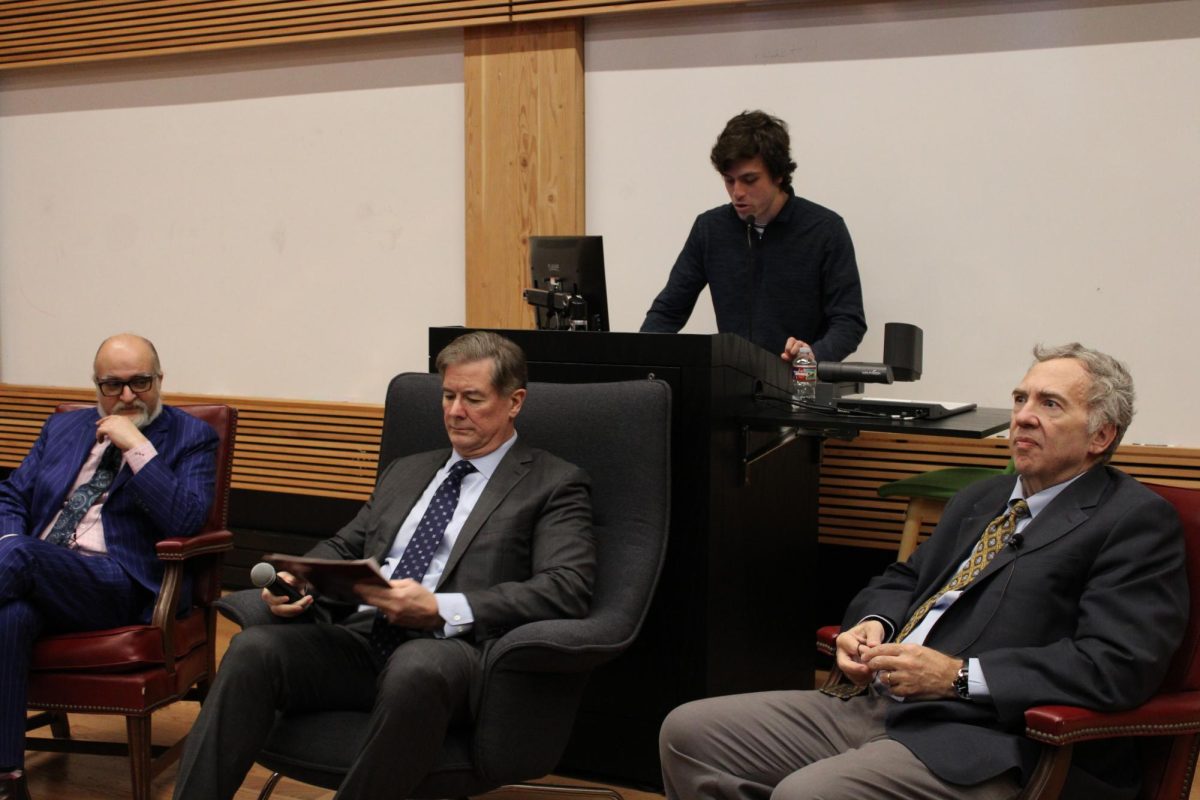The past month was plagued by tragically violent acts of terrorism. Outside the United States, ISIS successfully carried out three separate acts of terror. A Russian plane was destroyed in the sky above Egypt, suicide bombers attacked Beirut and Paris was besieged by barrages of bullets and bombs. In total, nearly half a thousand people lost their lives.
In the days and weeks following the attacks in Paris, various Republican candidates unleashed a torrent of support for the swift and immediate decimation of the rising threat of radical Islam that is ISIS. They spoke of the tenacity that this enemy poses, and rightfully so. However, the rhetoric didn’t stop at defeating ISIS. Purposefully or not, Muslims as a whole seem to have been affected following the attacks in Paris, and it may have something to do with red rhetoric spillover.
Immediately following the attacks in Paris, many of the Republican candidates were quick to voice their beliefs that the US should no longer admit Syrian refugees into the country. Despite the rigorous background checks that are purportedly used when determining whether or not to admit refuges, the right called for a complete halt. Well, not all of them called for complete blockage. Dwindling presidential hopeful Jeb Bush asserted that Syrian refugees could be admitted, as long as they could prove they were Christian.
Donald Trump made statements that were falsely interpreted as him suggesting American Muslim citizens ought to wear special ID badges. This is not what he said. He simply suggested that Muslims be entered into special databases that specifically recognize their status as Muslims in the country.
Small swatches of radical Islamic terrorists seem to have succeeded in terrorizing beyond Paris. The backlash against Muslims, even those who are American citizens, was striking at first. On Nov. 22, it became revolting.
It was then that at least a dozen people gathered outside of a mosque in Irving, Texas to protest the “Islamization” of America. Several of the protesters carried assault rifles. This protest was an act of terrorism on its own. It was designed to strike fear into the hearts of those who may have been going to worship that day, as they believed they could freely in America. Unfortunately for one Republican candidate, the protesters seemed to have clear political associations. Along with a tactical shotgun, one man brandished a Ted Cruz yard sign. Others held signs that supported the Cruz sign, and it seems fair to assume that any of the protesters gathered would have voiced their support for at least one of the Republican candidates. However, that is only an assumption.
Ted Cruz does not support domestic terrorism; at least I don’t believe he does. I don’t believe that any of the Republican candidates support domestic terrorism. I don’t believe that the greater majority of Republicans or Conservatives support domestic terrorism. But could the rhetoric they use be fueling instances of domestic terrorism?
Threats and small acts of violence against Muslims are rising in the United States. Republicans seem prepared to keep refuges out of the country, and for what? Because it’s possible that one of the Paris attackers was brought into the country amongst refugees, although the evidence against that proposition is strengthening. The actions of radicalized Islamists are having impacts on Muslims as a whole, which is unfair, unjust and illogical.
Muslims aren’t the only ones facing danger now either. A lone gunman opened fire in a Planned Parenthood parking lot, which left three people dead. There are traces of evidence suggesting he had intentions of acting directly against the organization. Who has been fiercely attacking the organization throughout their respective campaigns?
It would be absurd to suggest that Republicans are terrorists. They’re not. Nor are they sympathizers to terrorism. They shouldn’t be associated with the Irving protester, or the Planned Parenthood shooter. It wouldn’t be fair to tie their rhetoric against the organization with the actions of the alleged terrorists, right? That would be a bit of a generalization.





